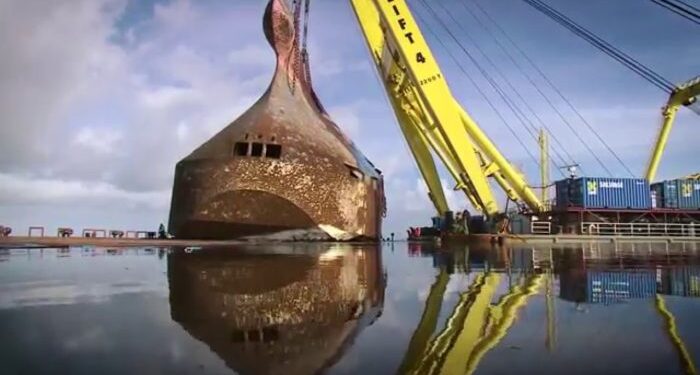Greece hauls the remains of cargo ships through the water, listing to one side with a rusting hull exposed in and near the Gulf of Elefsina, an industrial area of shipyards and factories near Greece’s major port of Piraeus. Now Greek authorities have begun to remove the ships, some of which have been there for decades, saying they are both an environmental hazard and a danger to modern shipping.
Specifically, as Charalampos Gargaretas, the chief executive officer of Elefsina Port Authority noted there are more than 27 shipwrecks and 12 dangerous vessels in the area that need to be hauled.
[smlsubform prepend=”GET THE SAFETY4SEA IN YOUR INBOX!” showname=false emailtxt=”” emailholder=”Enter your email address” showsubmit=true submittxt=”Submit” jsthanks=false thankyou=”Thank you for subscribing to our mailing list”]
Starting from the port of Piraeus to the island of Salamina that lies off of Elefsina, the sea area is full littered with 52 vessels, such shipwrecks, according to Dimosthenis Bakopoulos, head of Greece’s Public Ports Authority.
Yet, despite the attempts, the process has experienced barriers and difficulties. For instance, the owners of the ships are various, from individuals to inheritors, to private companies making it difficult for Greek Authorities to track them down.
As a result, authorities have put in motion a process where the abandoned ships can be appropriated by the state.
Moreover, the process of breaking the ships and removing their remains will be under salvage companies, which they will undertake free of charge to the state in return for being able to sell the metal for scrap.
Concluding, another barrier Greek Authorities face is the lack of licensed ship-breaking yards in the area, and some opposition from locals who fear the environmental impact of large ships being demolished in their area.






























































